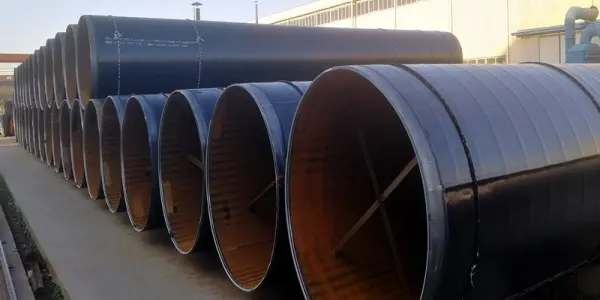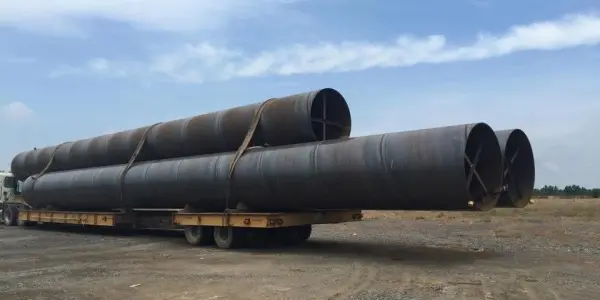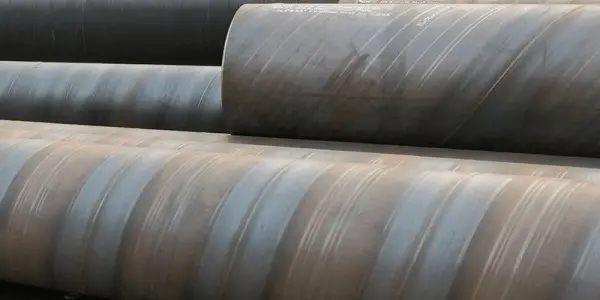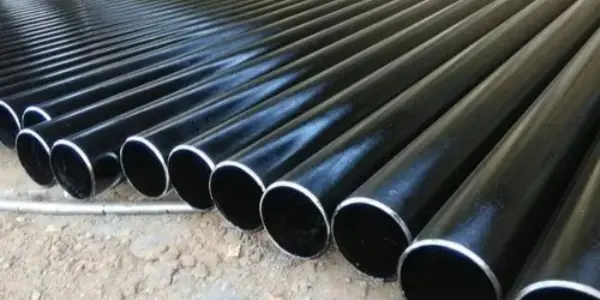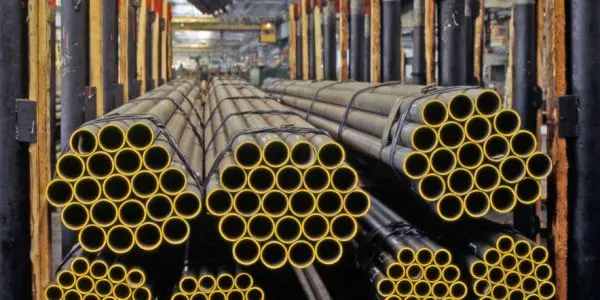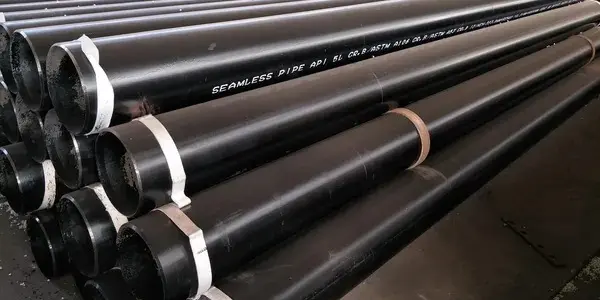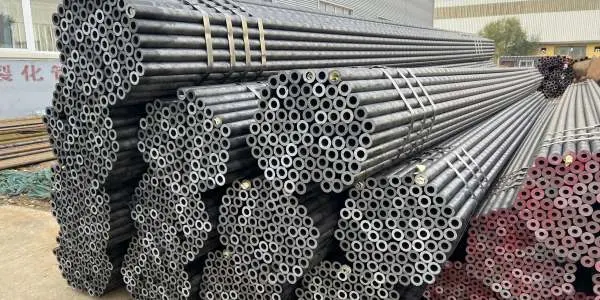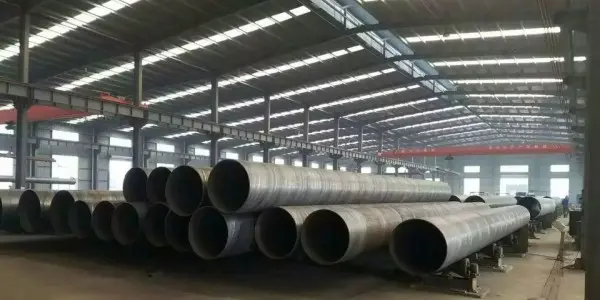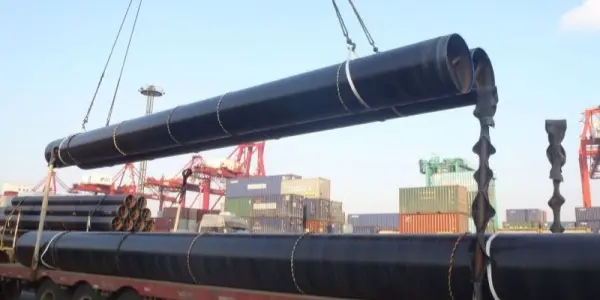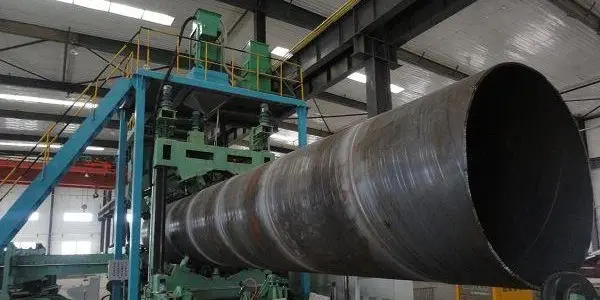-
Anti-corrosion SSAW steel pipes for water supply and drainage
The anti-corrosion SSAW steel pipe for water supply and drainage features a layer of polyethylene (PE) resin, ethylene-acrylic acid copolymer (EAA), epoxy (EP) powder, or non-toxic polypropylene (PP) applied to the inner wall of the steel pipe. This article will briefly introduce anti-corrosion SSAW steel pipes for water supply and drainage.
Read More
-
Anti-corrosion treatment on SSAW steel pipes for water transportation
When SSAW (Spiral Submerged Arc Welded) steel pipes are used for water transportation, particularly for carrying tap water or drinking water, it is crucial to apply the right anti-corrosion treatment to ensure both the durability of the pipes and the safety of the water being transported.
Read More
-
Principles and requirements for stacking SSAW steel pipes
Proper stacking of SSAW steel pipes is essential for maintaining their quality and ensuring safe storage and handling. Given their size and material properties, it is important to follow specific guidelines to prevent damage, corrosion, and deformation. These principles apply to various environments, including warehouses, outdoor storage, and transportation areas, to ensure the pipes remain in optimal condition and are easily accessible when needed. Here are the key principles and requirements for stacking SSAW steel pipes.
Read More
-
Details of DN36 seamless steel pipe
Seamless steel pipes are essential components widely used across various industries, including petroleum, chemicals, power generation, construction, and machinery manufacturing. Among these, the DN36 seamless steel pipe is in high demand for various projects due to its versatility and reliability. Below is a detailed overview of the DN36 seamless steel pipe.
Read More
-
Seamless carbon steel pipes cutting technology
Seamless carbon steel pipes are vital materials in various industries, playing an essential role due to their unique properties. In industrial production, seamless carbon steel pipes are critical as a foundational material, and their cutting process is a crucial step. With advancements in technology, the cutting methods for these pipes have seen significant improvements, allowing for better precision, efficiency, and adaptability to various applications. This article explores the cutting methods, technical characteristics, and future prospects of seamless carbon steel pipes, emphasizing their pivotal role in modern industry.
Read More
-
How to prevent corrosion of seamless steel pipes?
Corrosion is a major issue that affects seamless steel pipes (SMLS) across various industries. The process of corrosion accelerates the aging of pipes, leading to serious damage and costly repairs or replacements. Preventing the corrosion of seamless steel pipes—commonly referred to as pipe anti-corrosion—is crucial in pipeline maintenance and a key factor in ensuring safe production in industries relying on pipeline transportation. This article explores the causes of corrosion in seamless pipes and the methods to prevent it.
Read More
-
Interpretation of the implementation standards of 16Mn seamless steel pipes
16Mn seamless steel pipes are alloy structural steel pipes with manganese as the primary alloying element. Known for their excellent strength and wear resistance, they are widely used in pipeline systems that operate under high-pressure, high-temperature, and low-temperature conditions. These pipes are essential in industries such as petroleum, chemical, power generation, shipbuilding, and others.
Read More
-
How is SSAW steel pipe anti-corrosion?
The anti-corrosion process for SSAW steel pipes is a crucial step in enhancing their durability and performance in various applications. The following methods are commonly used for surface preparation and corrosion prevention for SSAW steel pipe.
Read More
-
Things to note when welding SSAW steel pipes
Welding and cutting of SSAW steel pipe structures are inevitable in their applications. Due to the inherent characteristics of SSAW steel pipes, the welding and cutting processes exhibit particularities when compared to ordinary carbon steel. These processes are more likely to result in various defects in the welded joints and the heat-affected zone (HAZ). The welding performance of SSAW steel pipes is primarily characterized by the following aspects.
Read More
-
What are the cutting methods for thick-walled SSAW steel pipes?
When working with thick-walled SSAW (Spiral Submerged Arc Welded) steel pipes, selecting the appropriate cutting method is crucial to ensuring precision and quality. Different cutting techniques offer various advantages depending on the material thickness, the required cut quality, and the specific application. Here are some of the most commonly used cutting methods for thick-walled SSAW steel pipes.
Read More

 English
English Español
Español




 Tel : +86-18565811709
Tel : +86-18565811709 Email :
Email : 
